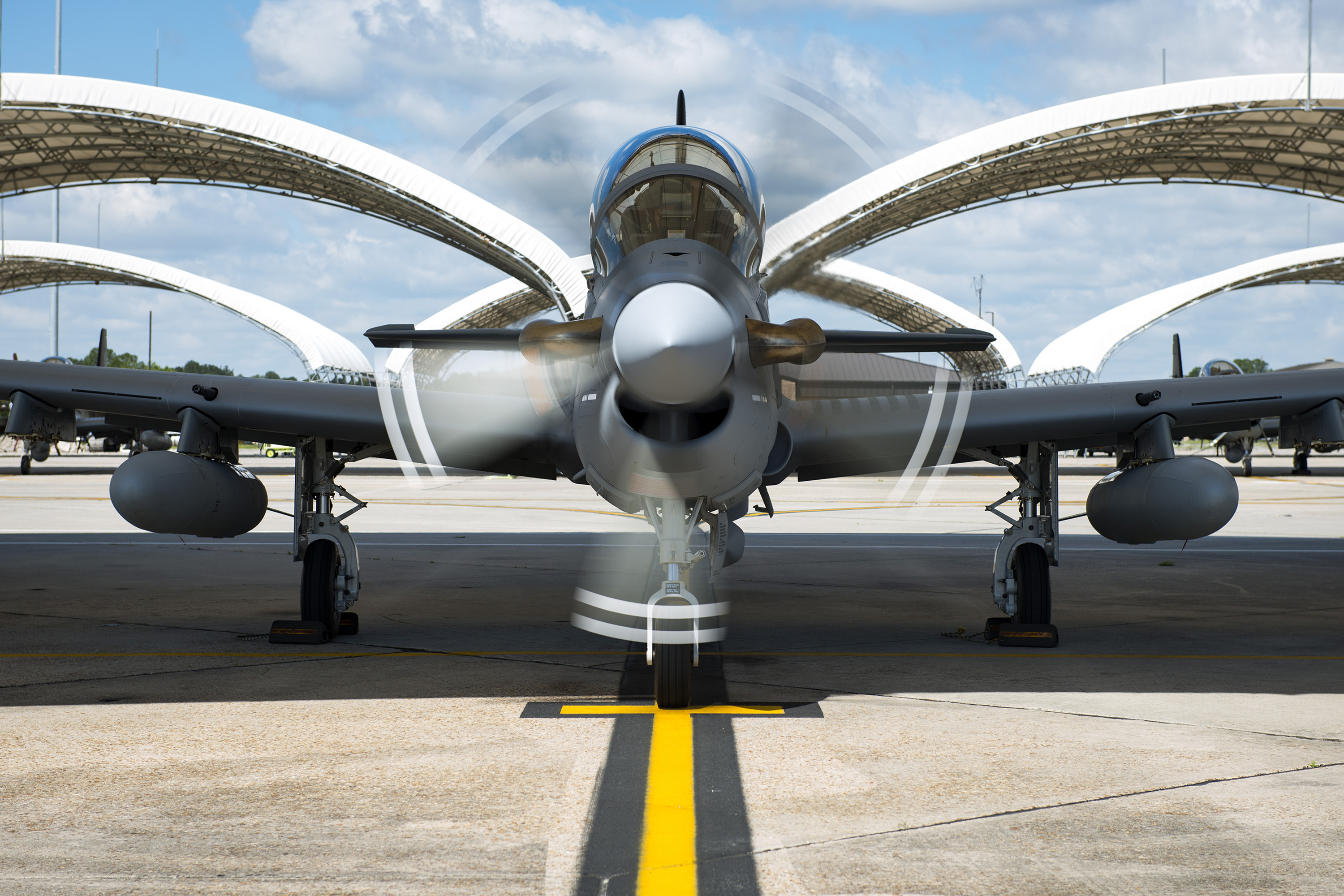
An A-29 Super Tucano light attack aircraft arrives at Moody AFB, Ga., April 24, 2018. USAF photo by A1CErick Requadt.
The head of Air Combat Command doesn’t think the recent crash of an A-29 participating in the service’s light attack experiment will derail the program.
Gen. Mike Holmes, speaking with defense reporters in Washington on Thursday, said the experiment is “on pause” as investigators determine what caused the crash last weekend at Holloman AFB, N.M., that killed a Navy pilot.
“We have suspended flying operations” pending a safety review board, Holmes said, and while he voiced the Air Force’s condolences for the pilot’s family, he said he doesn’t think the accident will have a “chilling effect” on the project, which looks to explore whether lightweight, inexpensive-to-operate turboprops can substitute for fast jets in a permissive environment and serve as a collaborative platform with less technically advanced allies.
Holmes said, it’s well understood that “aviation is unforgiving,” and the accident doesn’t invalidate the concept being explored. Since “it’s not an operational mission, … we can take a pause” and wait for the safety and accident boards to do their work. “We’ll look at the data and decide whether we want to go forward with the program,” he said, but he’s not aware of any immediate reason to terminate the effort outright.
The A-29 and AT-6 have been “flying since May” developing additional flight data on “sortie rates and … sustainment,” Holmes said.